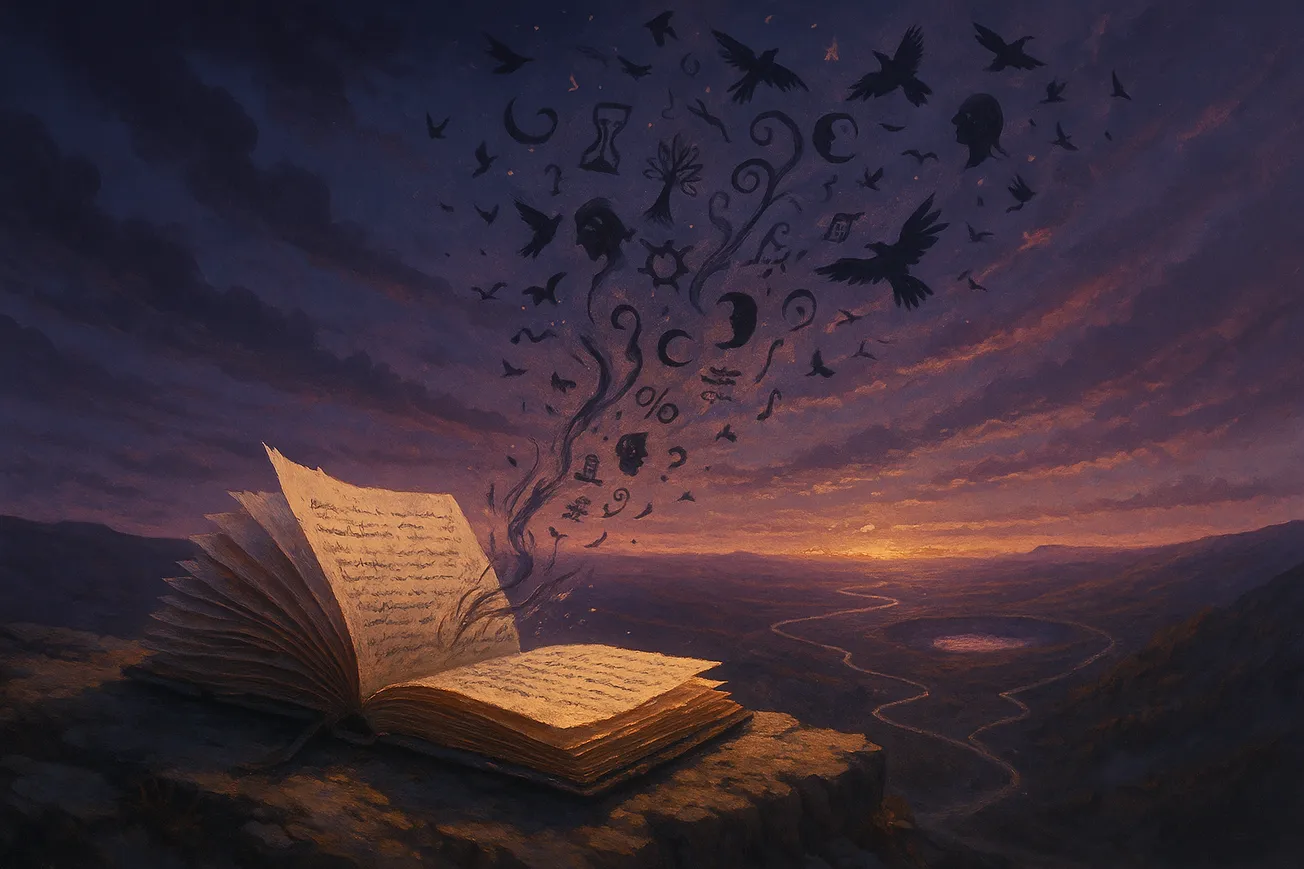🌈 The Fractal Story Engine | Meta-Meaning, Knowledge, Language | (15) MMK-002-R
There is something both sacred and terrifying about the story that will not end.
We like our endings. We crave them. Endings bring shape. They contain what would otherwise spill. We reach for closure like thirsty hands for water, mistaking finality for peace. And yet, if we are honest, so many of life’s truest things remain unfinished: conversations we should have had, versions of ourselves we never dared to become, love letters half-drafted in the soul.
The story that refuses to stop confronts us with the parts of ourselves that remain unwritten.
In every culture, sacred stories begin as oral murmurs: fluid, adaptive, alive. Only later do they harden into scripture. A book that keeps writing itself refuses canonization. It invites a relationship instead. It suggests that revelation is not a past event but an ongoing gesture. The ink is still wet because the world is still listening.
What scares us about that?
Perhaps we fear that if the story never stops, then the self must remain porous. The identities we have laminated start to curl at the edges. The stories we tell about ourselves and about others must be held more loosely. That can feel like threat. But it can also be mercy.
We live in a world obsessed with production, with outcomes, with the appearance of coherence. To be a finished product is praised. But a book that will not end reminds us that becoming is more honest than arrival. A story still unfolding holds room for redemption, for contradiction, for miracles that would never be permitted in a finalized draft.
When we encounter something that will not stop writing itself, we are forced to ask: what parts of me have I declared finished too soon?
Maybe the unfinished story is not a flaw, but a feature. Maybe it is not about control, but communion. In a world that wants everything defined, boxed, sold, and shelved, perhaps the highest form of rebellion is a life lived like an unwritten book, revealing itself page by page, beyond prediction, immune to summary.
The page that does not stop might be the only one that tells the truth.
What can the reader learn from this story?
Some stories never end because we are not meant to be finished. The unwritten parts of ourselves are not mistakes but invitations. In a culture obsessed with resolution, the sacred work is to remain open, curious, and still becoming.

